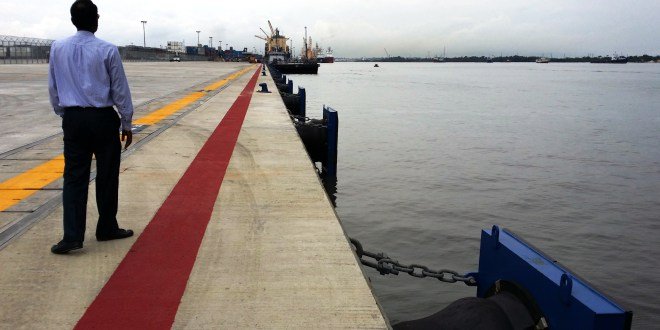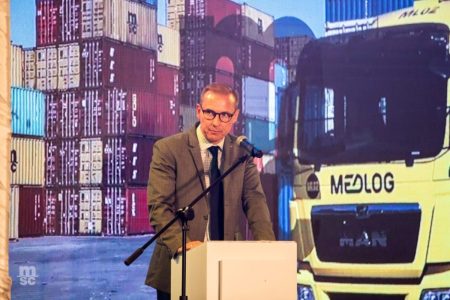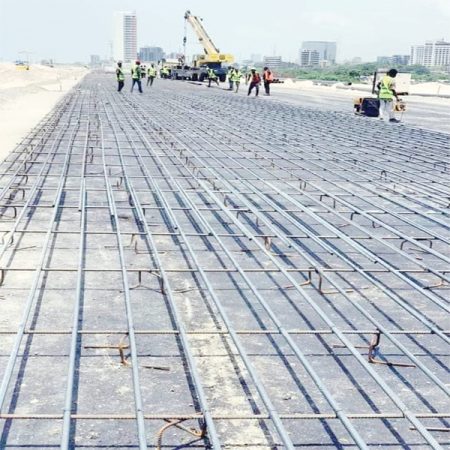
Mkpoikana Udoma
Port Harcourt — Maritime lawyers under the auspices of Admiralty Lawyers Society of Nigeria, says the siting of deep seaport in Akwa Ibom State, would generate over 4million jobs in the country.
National President of the Group, Angus Chukwuka Esq., at the 2019 Associate Membership Course in Uyo, said the country will be better for it, as the nation income earnings and gross domestic product will experience a boom.
Chukwuka said with the deep seaport project, Nigeria will have another opportunity of managing a boom, warning that since the country failed to manage the oil boom, it should demonstrate capacity to manage a maritime boom.
The Admiralty Lawyers stated that Nigeria has what it takes to be a major player in the maritime world, especially with its blessed marine environment, and waters which natural channels and draught have the potentials of being not just tourist ambience but world class maritime hubs.
He disclosed that the tourist potentials of the Niger Delta waters are so enormous that not harnessing them effectively may be the reason the country is struggling with payment of the lingering minimum wages, varsity teachers’ emoluments and foreign loan profiles.
He said Akwa Ibom State for instance is blessed with, perhaps, the most promising natural water channel in the country.
Also Read: Contravention of import duty: NAGAFF seeks equal treatment for all goods
“Beyond tourism, the siting of a deep seaport in Akwa Ibom would generate as much as four million jobs, lead to spring up and growth of maritime businesses in the state. Generated appurtenant maritime operations and services could lead to creation of over two million jobs for unemployed youths in the state and beyond.
“Internally generated revenue for the state would soar as high as heavens. Nigeria would be better for it as the nation income earnings and Gross domestic product will experience a boom.
“Akwa Ibom deep-sea port experiment or project would present great possibilities. Nigeria will have another opportunity of managing a boom. If the country failed to manage the oil boom, it may perhaps demonstrate capacity to manage a maritime boom.
“Aside from Akwa Ibom State, the deep-sea port may also be sited in any of the states in the Niger Delta. This would make for a balanced trade relationships, and proper development for nation’s maritime industry.
“Wherever it is sited, capacity is key. Our capacity as a nation, to build and sustain a buoyant maritime industry can provide an answer for our chronic debt burdens, and sprawling infrastructural decays.
“It can provide an alternative route to oil exploration and exploitations and may in fact wear us the cap as indeed the giant of Africa, terminating decades of national pretentions. Pertinently there is also the capacity to provide promote or promulgate the right rules, regulations, policies and laws relating to the maritime industry.”
The Maritime lawyers also commended the Federal Government for closing land borders, saying that the move will help check influx of foreign products at the expense local production an also facilitate economy diversification efforts.
Chukwuka said countries like China and Japan are beneficiaries of such drastic efforts and are today great economies., also urged the government to pay more than lip service to maritime security.
He further explained that the training course was imperative as it was geared towards the building of capacity in the area of maritime law and practice.
“We seek to build the capacity of lawyers on Bills of lading and International Conventions, Charter Party contracts, Arrest and Release of ships and air crafts, Maritime Jurisdiction, Maritime Liens and a host of others.
“We are intent at simplifying the terms, usages and procedures in maritime law/ practice to attendees with the hope of sharpening their knowledge and skills. The result is that they will become more efficient in handling maritime claims and briefs. Apart from that, they will become more knowledgeable of maritime rules, regulations and laws and demonstrate ability towards implementing and enforcing them.
“Such capacity will further help our agencies who may be their employers to better regulate, and develop our nation’s maritime industry. An improved capacity in maritime can guarantee prevention of capital flights from the state and the nation. Nothing can be more rewarding than that.”



